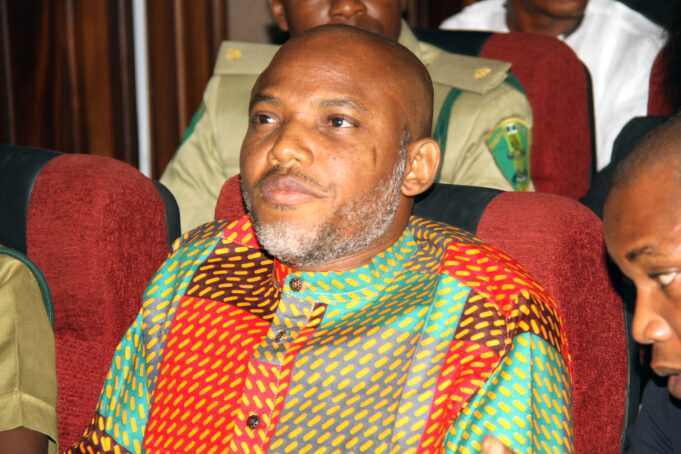(GIN)–The leader of the Indigenous People of Biafra (IPOB), has been arrested in London and returned to Nigeria where he faces trial for leading a secessionist movement in south-east Nigeria in 1967 which was met with a declaration of war by the Nigerian government, 30 years of fighting and more than a million deaths.
Nnamdi Kanu, a British national who has lived in south London, had been wanted by Nigerian authorities since 2015, when he was charged with terrorism offenses and incitement over broadcasts aired on Radio Biafra, a digital station he founded and ran from his home in Peckham.
Mr. Kanu remains a hero to hundreds of thousands of followers.
For more than a decade, his fiery radio broadcasts and social media posts were thorns in the side of the Nigerian government.
The war became a seminal event in Nigeria’s modern history, even for those who did not live through it. Writer Chimamanda Ngozi Adichie, in an article titled “Hiding from our Past, was born before the Biafran war but says her family was scarred by it.
“In 1967, after massacres in northern Nigeria that targeted southeastern Igbo people, the southeast seceded and formed an independent nation called Biafra. Nigeria went to war to prevent the secession,” she wrote.
“By the time Biafra was defeated, in 1970, at least a million people were dead, including my grandfathers—proud, titled Igbo men who were buried in the unmarked graves of refugee camps. My parents lost other relatives, and everything they owned. A generation was robbed of its innocence.”
After two Nigerian governments were overthrown in what were seen as “Igbo coups” led by junior army officers, riots in northern Nigeria targeted at Igbos, killed many and forced up to a million to return to southeastern Nigeria. Biafran independence was declared in 1967 but its capital, Umuahia, fell to Nigerian forces in 1969. Surrender followed in 1970.
The IPOB and Mr. Kanu have continued to frustrate the Nigerian government. At the beginning of July, President Buhari tweeted that “those misbehaving” would be dealt with in “the language they will understand”—a reference to security challenges in southeast Nigeria.
After the tweet was deleted by Twitter, Nigeria went on to issue a nationwide and controversial ban on Twitter, with threats of imprisoning citizens circumventing the ban.
Mr. Kanu is reportedly being held in the capital city of Abuja where he is awaiting trial. He currently has 11 charges levelled against him including “engaging in subversive activities.”













